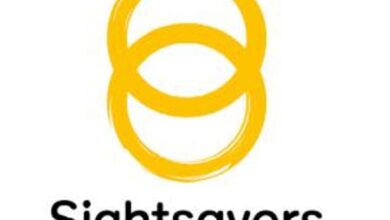Using social media to find a job

Social media has become an invaluable tool for businesses, individuals, and even whole industries. It’s the easiest way to promote yourself, your products and services, or your skills, as well as interact with customers and clients. And in the hospitality industry especially, it pays to build your brand both personally and professionally online.

Many hospitality establishments use social media to build a relationship with their customers – and they also turn to social media networks to build relationships with prospective employees. It’s cheaper for hotels and hospitality businesses to advertise positions online through social media than pay a recruitment agency, and they have more opportunity to suss out potential candidates through all their social profiles.
But career websites and recruiters are flooded with resumes from job seekers from around the world all the time. If you don’t want to be lost in the deluge of talented applicants, you need to make sure that everything about your online presence pays off.
Don’t let your personal life impact your profession
It’s hard to find a job. The world’s economy is a mess, and the next guy or girl is just as qualified as you. Employers are swamped with impersonal CVs and job applications, and sometimes they need that something extra to simplify the decision-making process. Social media has changed the recruitment process because employers can get to know you before they even meet you.
A strong presence on social media is the best way to open the door to career opportunities. Clean up all of your profiles, starting with a professional profile picture. Employers don’t want to see you pulling a face or posing with friends. Put your best ‘face’ forward, because these days your social profiles are the first impression you’ll make on an employer.
You don’t want to lose out on an interview because of a profile photo of that time you got drunk at that party… You also don’t want your potential boss seeing photos of you in compromising or embarrassing positions. Your Facebook profile picture doesn’t have to be all business, but just think about the impression it makes when viewed by someone who doesn’t know you very well.
Think before you speak
If you wouldn’t want an employer to judge you on what you tweet or post on Facebook, then you need to protect your tweets, or think long and hard about what you’re putting out there for the world to see.
Take a look at all of your profiles and especially your moans or rants – are any of them overly negative about your current or previous job or employer? A prospective employer doesn’t want to see that you’re the kind of person who would trash their reputation when you’re having a bad day.
Basically, just don’t give recruiters or potential employers a reason to reject you. If you’ve already publicly criticised your old company, delete these posts before a recruiter has the chance to see them.
Engage and promote your potential
In today’s world, and especially in the hospitality industry, there’s a global marketplace for jobs and you’ll be competing with millions of other candidates. Make sure all of your profiles and online resumes are up-to-date. Be very clear about who you are and what your skills are. Don’t try to be funny or clever – rather portray yourself as a professional in your field.
Interact with prospective employers by following them on LinkedIn, Twitter and Facebook, and engaging with them on topics of interest. You’ll stick out from the rest of their silent followers because they’ve interacted with you and they know what you’re interested in.
The places you want to work for won’t always come looking for you, but if you proactively keep an eye on their profiles, you’ll be the first to find out when a position opens up. Many companies these days keep a database of potential candidates so that they can fill a position quickly, and you want to make sure that you’re one of those candidates by engaging with them.
Highlight your potential
If you manage to make it to the second round of interviews and are competing for the job with only two or three other applicants, it’s extremely likely that your prospective employer is going to try to find out more about you. They’re going to Google you, see if you have mutual friends, see what kind of content you’re posting, what groups or communities you get involved in, and so on.
Look at your social profiles objectively – how do your profiles look to people looking in from the outside? Do you come across as a savvy professional who knows what’s going on in your field? If not, take steps to rectify this. Start sharing content that’s intelligent and shows where your interests lie.
At the end of the day, you’ll get the job based on your skills and experience, but you’ll get the interview based on how the recruiter or employer perceives you. Give them social media profiles that are professional and highlight your potential as a prospective employee.




